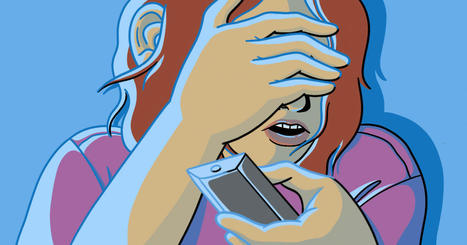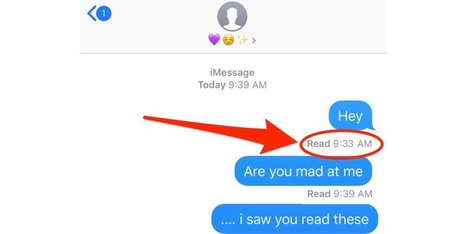 Your new post is loading...
 Your new post is loading...
For people with serious medical conditions, groups are a valuable source of information—and they make it hard to quit Facebook. Here are some alternatives.
Olivia Rodrigo has been able to balance her onscreen job with her raw pop fame, a different path than the stars before her.
In the spring, Rick Rose drew the wrath of strangers after he practically shouted on Facebook that he wasn’t buying a face mask. Two months later, he contracted COVID-19 — and, he posted, he was...
Ryan's World is one of the most popular YouTube channels aimed at chldren. A children's media expert, advertising watch dog, media psychologist and two (very) frustrated parents share their views on why that's not particularly great.
We may not know our neighbors very well, but video cameras and social platforms can reveal a lot more than any of us suspect.
A large share of respondents predict enormous potential for improved quality of life over the next 50 years for most individuals thanks to internet
A boy was beaten by another student in a middle-school locker room in Lakeland, Florida, as classmates filmed the attack. Khaseen Morris was fatally stabbed in Long Island as other youths videotaped. Is social media to blame?
Later this week, popular anonymous messaging app Kik will shut down. Just a few days ago, company CEO Ted Livingston announced that he would pull the plug on the messenger, opting instead to focus on building a cryptocurrency — the only pivot a…
If television is a lens through which we can view ourselves, most of the women my age seem to be watching these four very bingeable series — and for good reason.
Use narrative analysis to understand the “why” in consumer behavior trends
From Jenna Jameson’s keto diet progress to the #10YearChallenge, people love transformation pictures. But do they do more harm than good?
The film industry has turned everything from troll dolls to emojis into big-screen blockbusters -- and it looks like another part of Internet culture is next in line.According to a new report from Deadline, Paramount Players has acquired the script to Unboxing, a script from Ice Age: The Meltdown [...]
|
Since becoming a mom, I've noticed I can no longer handle violence or children and peril on TV. Just me?
Prince Harry and Meghan Markle may not use social media to promote their forthcoming projects, such as their Netflix documentaries.
With schools everywhere suddenly closing, here are three ways you can stay connected with your students.
Sometimes public figures become targets because they are in the midst of a scandal. Other times it's for no real reason at all.
Scheduling mental down time is the best thing you can do for your mind.
Apple’s Screen Time is meant to give customers a way to control their kids’ devices, but intrepid youngsters have exploited bugs and workarounds.
The social network has been hiding the number of likes and views from some users, testing whether it promotes expression and cuts back users' needs to feel popular.
As it turns out, read receipts could be causing the people you text to deal with confusion, anxiety, and misunderstandings.
Will Smith recently became an investor in Step, a mobile-based banking service app for teenagers with the goal of promoting financial literacy.
The McClures of New Jersey, aka the ‘McClure Twins Family,’ catapulted to YouTube stardom three years ago, then soon discovered the downside of internet fame.
The age of automation is here and there’s no turning back. The future of work holds many opportunities for those willing to learn and adapt.
26% of U.S. adults in one Pew survey said they had deleted the Facebook app from their phone in the past 12 months.
|
 Your new post is loading...
Your new post is loading...
 Your new post is loading...
Your new post is loading...


































There is nothing inherently unhealthy about social media groups--they can provide valuable social support. Ask yourself: do the group's members create a sense of belonging that is emotionally positive or does it undermine your confidence? The need to belong when we’re scared and challenged by life is very strong. It can make us vulnerable to coercion, persuasion, and misinformation. Check for qualifications, validate information sources, avoid people who tell you what you "should" do, and always triangulate information. #health #socialmedia #socialsupport